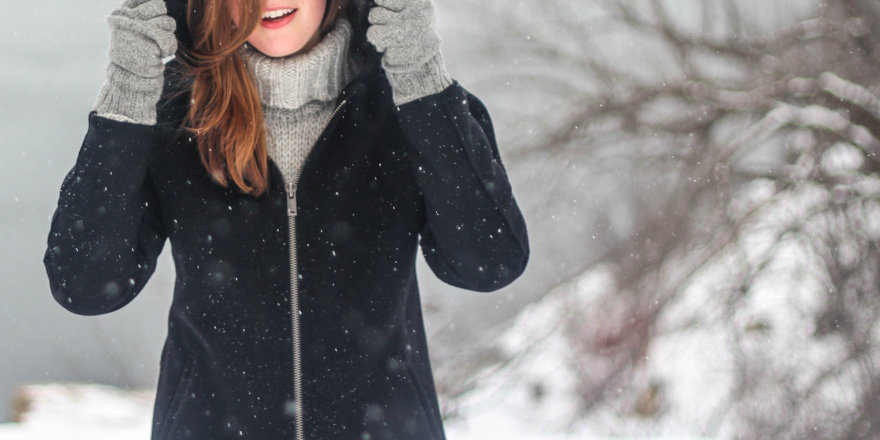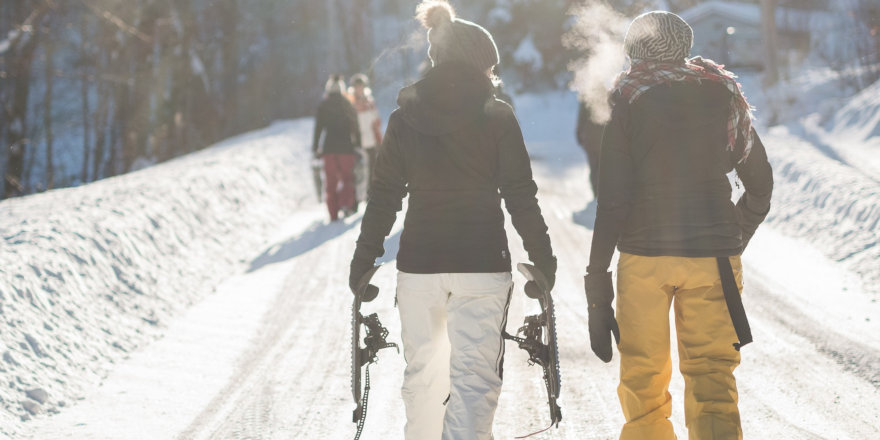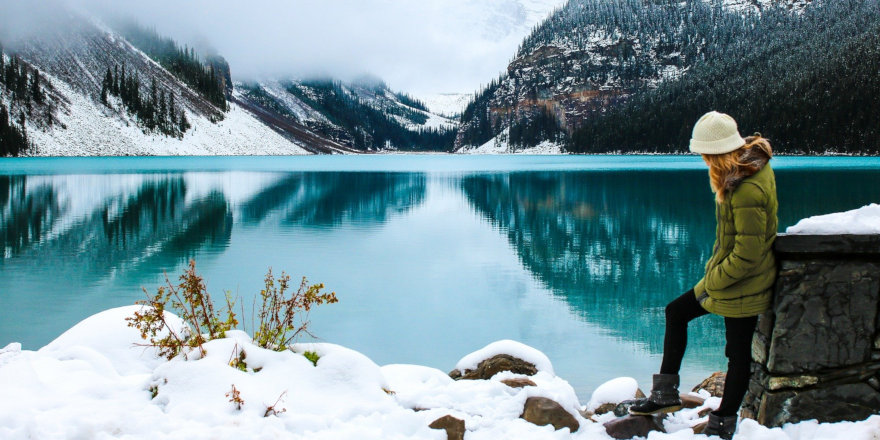Everything You Need to Know to Survive Winter
Get yourself covered so you can enjoy the wintery brilliance of Canada.


Moving to Canada to study is exciting, and it's definitely one of the most popular countries for students to begin a new adventure for a multitude of reasons.
Good manners and high prospects are part and parcel of this vast and gorgeous country, and Canada's growing demand for talented people has created a lot of interest around this nation as a place for students and expats alike.
There are plenty of urban legends surrounding life in Canada. Its people are polite, poutine is a guilty pleasure of a national dish, and of course, winter is so cold that it sometimes matches the surface temperature of Mars.
An exaggeration? Perhaps, although not by much. International students experiencing their first Canadian winter often find that common sense for colder weather is only half the story. Brush up on the facts with a few of our tips below.
Canadian cold weather is a big deal
There's no denying that Canadians, whether native or having immigrated into the country, never take a mild winter for granted. The Government of Canada offers a series of steps to take for both newcomers to the nation and experienced residents, all in pursuit of safety during those colder months.
At their worst, temperatures can drop to -40℃ as readily as they can soar in those beloved Canadian summers. In fact, students experiencing their first Canadian winter or two will soon learn why Canadians are so excited to take advantage of the warmer months when they arrive. They've been hard earned!

Canadian winter attire is no laughing matter
Bundling up in plenty of layers is an absolute necessity once winter hits. That includes covering your head with a hat, wearing fleeces, coats, undershirts and more. It also means covering your face in case of blizzard-like conditions and biting winds.
Scarves, snoods and specialist masks and eyewear are all highly recommended, if somewhat costly, items of clothing that any expat to Canada will likely need to put into their wardrobes.
However, you also ought to consider how you intend to handle icy conditions. The temperature plunges of a Canadian winter are only half the problem, after all, as slippery conditions underfoot can make simply getting down the street a dangerous ordeal.
There's a certain shuffling walking style that local Canadian people have mastered that expats might have to get used to. Think heavy boots with grippy soles and a penguin-like waddle, at least at first. It's not the sort of dignified stride you might want as a new arrival, but safety first!
You can also buy special cleats or slip on soles that go over the bottom of your shoes to further increase your grip on slippery surfaces. It's best you get used to this idea while planning to move to Canada, because the winters can prove pretty overpowering to the unprepared.
Don't forget your health and wellbeing
Cold weather has so many ways of affecting your health, it's important to look after your wellbeing. As a student, it's important for you to be able to access the country's health services and facilities as and when you need to. While Canada is well-known for offering free healthcare, only Canadian citizens and permanent residents are eligible to access the country's healthcare system for free.
Even those who become permanent residents in Canada have to wait three to six months before their free healthcare coverage kicks in. Because of this, many students opt for a global health plan designed to cover them while they're living and studying in Canada. That way, you'll have peace of mind that if you were to fall ill you would receive the care you need.

Hearth and home will be your best friend in Canada's winter
Canadian people really know their stuff when it comes to buildings that aren't just pretty, but that can withstand the harsh elements come the colder months. Canadian buildings, even the older ones, tend to be very well insulated, and quite generous with their central heating layouts too. Nevertheless, be prepared for the increase in energy and heating bills come those winter months.
Don't feel as though you need to remain housebound in winter in Canada though, as that's a one-way ticket to going stir crazy. Remember, you're going to be living among some of the most mild-mannered, friendly, and welcoming people on Earth, so definitely look into building your friendships with the locals over a hot bowl of poutine and a bucket list of cool things to do!
You'll also find plenty of winter activities to enjoy no matter where you choose to live and study in Canada. From sledding, snowboarding and skiing, to skating, ice fishing and snowshoeing — these thrilling outdoor activities are sure to make the cold a bit more bearable.
Moving abroad to study can be difficult enough, especially if you're used to a strikingly different climate. Nevertheless, there's plenty of reasons why students choose Canada as their new home — whether it's due to the high standard of education or the breathtakingly beautiful landscapes. As long as you prepare yourself for the cold weather, there's no reason why you shouldn't enjoy all the wonderful things Canada has to offer.